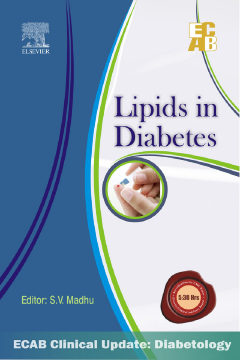
Additional Information
Book Details
Abstract
Type 2 diabetes mellitus is associated with a greater risk of developing atherosclerotic macrovascular diseases like myocardial infarction, stroke, and peripheral vascular disease. There is 2- to 4-fold increased risk of atherosclerotic heart disease and stroke in diabetic patients compared to non-diabetic patients. As the prevalence of type 2 diabetes is increasing rapidly, this diabetes related atherosclerotic disease is predicted to be a major public health problem.
Atherosclerosis is a complex process and in diabetic patients, it behaves differently with increased lesion progression and severity. This accelerated atherosclerotic process in diabetics is explained on the basis of several risk factors like hyperglycemia, dyslipidemia, accelerated formation of advanced glycation end products, increased oxidative stress, and genetic factors. It is difficult to establish precisely the elements responsible for this atherosclerosis in diabetics, but by epidemiological, clinical, and by animal studies, it has been possible to get an idea of this problem in diabetics.
Of the several risk factors for atherosclerosis in diabetes, dyslipidemia is the leading one, and an insight into the pathophysiologic relation of isolated triglyceridemia in Indian diabetics with the identification of the targets for control of lipids in diabetes (practical vs. ideal) needs to be well understood by the treating physician.
This book is designed to address such issues with supportive typical clinical scenarios, with which the readers will be able to identify. Thus, it provides an excellent opportunity to widen one’s perspective in this area.
